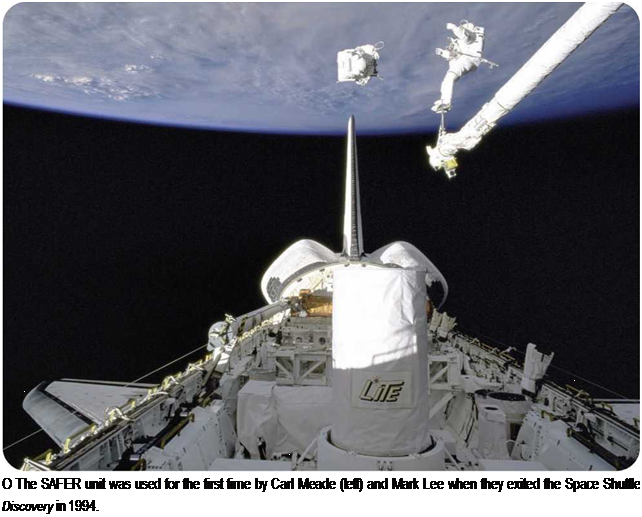MMUs and SAFER
The simple HHMU gas guns led to the bigger maneuvering units worn by astronauts in later years. One of these was NASA’s manned maneuvering
 |
unit (MMU). The unit clipped onto the back of an astronaut’s spacesuit. The MMU enabled the astronaut to fly freely in space, without a tether, like a one – person spacecraft.
The MMU was propelled by puffs of nitrogen gas from twenty-four thrusters pointing in different directions. It was flown by means of two hand controllers. The controller in the astronaut’s right hand was used for pitch, roll, and yaw motions. The left controller moved the astronaut in a straight line forward and back, up, and down, or left and right. The MMU also could fire jets to keep the astronaut in the same position.
MMUs were used by Space Shuttle astronauts between 1984 and 1986. Cosmonauts at the Russian Mir space station tested a similar jetpack for performing extra-vehicular activity (EVA).
After the MMU, NASA developed a much simpler space maneuvering unit. Astronauts working outside the Space Shuttle or the International Space Station wear a device called the simplified aid for EVA rescue, or SAFER. Tested in space for the first time
 |
||
in 1994, the unit fits around an astro – propulsion. The SAFER is much smaller naut’s life-support backpack. Like the than the MMU and it holds less gas, so it MMU, the SAFER uses nitrogen gas for is intended for emergency use only.











